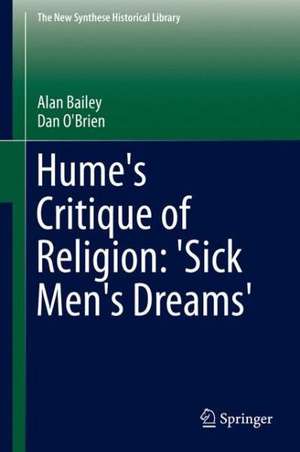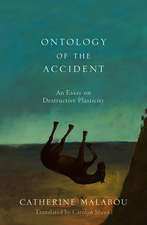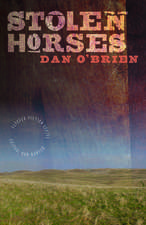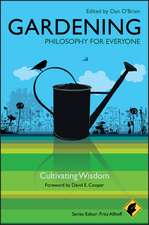Hume's Critique of Religion: 'Sick Men's Dreams': The New Synthese Historical Library, cartea 72
Autor Alan Bailey, Dan O'Brienen Limba Engleză Hardback – 23 oct 2013
The authors first detail the pressures and forms of repression that confronted any 18th century thinker wishing to challenge publicly the truth of Christian theism. From there, they offer an overview of Hume's writings on religion, paying particular attention to the inter-relationships between the various works. They show that Hume's writings on religion are best seen as an artfully constructed web of irreligious argument that seeks to push forward a radical outlook, one that only emerges when the attention shifts from the individual sections of the web to its overall structure and context. Even though there isno explicit denial in any of Hume's published writings or private correspondence of the existence of God, the implications of his arguments often seem to point strongly towards atheism.
David Hume was one of the leading British critics of Christianity and all forms of religion at a time when public utterances or published writings denying the truth of Christianity were liable to legal prosecution. His philosophical and historical writings offer a sustained and remarkably open critique of religion that is unmatched by any previous author writing in English. Yet, despite Hume’s widespread reputation amongst his contemporaries for extreme irreligion, the subtle and measured manner in which he presents his position means that it remains far from clear how radical his views actually were.
| Toate formatele și edițiile | Preț | Express |
|---|---|---|
| Paperback (1) | 558.32 lei 39-44 zile | |
| SPRINGER NETHERLANDS – 23 aug 2016 | 558.32 lei 39-44 zile | |
| Hardback (1) | 569.00 lei 39-44 zile | |
| SPRINGER NETHERLANDS – 23 oct 2013 | 569.00 lei 39-44 zile |
Din seria The New Synthese Historical Library
- 18%
 Preț: 950.52 lei
Preț: 950.52 lei - 18%
 Preț: 949.73 lei
Preț: 949.73 lei - 18%
 Preț: 946.24 lei
Preț: 946.24 lei - 18%
 Preț: 953.82 lei
Preț: 953.82 lei - 20%
 Preț: 1618.07 lei
Preț: 1618.07 lei - 15%
 Preț: 643.00 lei
Preț: 643.00 lei - 18%
 Preț: 955.56 lei
Preț: 955.56 lei - 15%
 Preț: 644.82 lei
Preț: 644.82 lei - 18%
 Preț: 1387.55 lei
Preț: 1387.55 lei - 18%
 Preț: 955.56 lei
Preț: 955.56 lei - 18%
 Preț: 951.47 lei
Preț: 951.47 lei - 15%
 Preț: 637.46 lei
Preț: 637.46 lei - 15%
 Preț: 644.63 lei
Preț: 644.63 lei - 18%
 Preț: 952.72 lei
Preț: 952.72 lei - 15%
 Preț: 644.49 lei
Preț: 644.49 lei - 15%
 Preț: 645.47 lei
Preț: 645.47 lei - 18%
 Preț: 953.82 lei
Preț: 953.82 lei - 18%
 Preț: 958.38 lei
Preț: 958.38 lei - 15%
 Preț: 639.25 lei
Preț: 639.25 lei - 15%
 Preț: 638.89 lei
Preț: 638.89 lei - 18%
 Preț: 953.65 lei
Preț: 953.65 lei - 18%
 Preț: 952.26 lei
Preț: 952.26 lei - 18%
 Preț: 950.52 lei
Preț: 950.52 lei - 18%
 Preț: 1230.66 lei
Preț: 1230.66 lei - 15%
 Preț: 646.11 lei
Preț: 646.11 lei
Preț: 569.00 lei
Preț vechi: 711.24 lei
-20% Nou
Puncte Express: 854
Preț estimativ în valută:
108.93€ • 113.66$ • 91.31£
108.93€ • 113.66$ • 91.31£
Carte tipărită la comandă
Livrare economică 10-15 martie
Preluare comenzi: 021 569.72.76
Specificații
ISBN-13: 9789400766143
ISBN-10: 9400766149
Pagini: 268
Ilustrații: XVIII, 247 p. 1 illus.
Dimensiuni: 155 x 235 x 22 mm
Greutate: 0.55 kg
Ediția:2014
Editura: SPRINGER NETHERLANDS
Colecția Springer
Seria The New Synthese Historical Library
Locul publicării:Dordrecht, Netherlands
ISBN-10: 9400766149
Pagini: 268
Ilustrații: XVIII, 247 p. 1 illus.
Dimensiuni: 155 x 235 x 22 mm
Greutate: 0.55 kg
Ediția:2014
Editura: SPRINGER NETHERLANDS
Colecția Springer
Seria The New Synthese Historical Library
Locul publicării:Dordrecht, Netherlands
Public țintă
ResearchCuprins
Chapter 1. Hume the Infidel.- Chapter 2. Blasphemy, Dissimulation, and Humean Prudence.- Chapter 3. Hume's Writings on Religion.- Chapter 4. Hume on the Intelligibility of Religious Discourse.- Chapter 5. Epistemological Scepticism and Religious Belief.- Chapter 6. That Simple and Sublime Argument.- Chapter 7. The Design Argument and Empirical Evidence of God's Existence.- Chapter 8. The Problem of Evil.- Chapter 9. Miracles.- Chapter 10. The Natural History of Religion.- Chapter 11. Morality.- Chapter 12. History and the Evaluation of Religion.- Chapter 13. Was Hume an Atheist?.
Recenzii
“Students and more advanced scholars alike will find this study highly illuminating and instructive. It deserves to be widely read and carefully considered.” (Paul Russell, The Philosophical Quarterly, March, 2018)
Textul de pe ultima copertă
In this volume, authors Alan Bailey and Dan O’Brien examine the full import of David Hume’s arguments and the context of the society in which his work came to fruition. They analyze the nuanced nature of Hume's philosophical discourse and provide an informed look into his position on the possible content and rational justification of religious belief.
The authors first detail the pressures and forms of repression that confronted any 18th century thinker wishing to challenge publicly the truth of Christian theism. From there, they offer an overview of Hume's writings on religion, paying particular attention to the inter-relationships between the various works. They show that Hume's writings on religion are best seen as an artfully constructed web of irreligious argument that seeks to push forward a radical outlook, one that only emerges when the attention shifts from the individual sections of the web to its overall structure and context. Even though there is no explicit denial in any of Hume's published writings or private correspondence of the existence of God, the implications of his arguments often seem to point strongly towards atheism.
David Hume was one of the leading British critics of Christianity and all forms of religion at a time when public utterances or published writings denying the truth of Christianity were liable to legal prosecution. His philosophical and historical writings offer a sustained and remarkably open critique of religion that is unmatched by any previous author writing in English. Yet, despite Hume’s widespread reputation amongst his contemporaries for extreme irreligion, the subtle and measured manner in which he presents his position means that it remains far from clear how radical his views actually were.
The authors first detail the pressures and forms of repression that confronted any 18th century thinker wishing to challenge publicly the truth of Christian theism. From there, they offer an overview of Hume's writings on religion, paying particular attention to the inter-relationships between the various works. They show that Hume's writings on religion are best seen as an artfully constructed web of irreligious argument that seeks to push forward a radical outlook, one that only emerges when the attention shifts from the individual sections of the web to its overall structure and context. Even though there is no explicit denial in any of Hume's published writings or private correspondence of the existence of God, the implications of his arguments often seem to point strongly towards atheism.
David Hume was one of the leading British critics of Christianity and all forms of religion at a time when public utterances or published writings denying the truth of Christianity were liable to legal prosecution. His philosophical and historical writings offer a sustained and remarkably open critique of religion that is unmatched by any previous author writing in English. Yet, despite Hume’s widespread reputation amongst his contemporaries for extreme irreligion, the subtle and measured manner in which he presents his position means that it remains far from clear how radical his views actually were.
Caracteristici
Offers a distinctive interpretation of David Hume, a figure of considerable interest to today’s general educated public Features an overview of Hume's writings on religion as well as detailed analysis of his relevant texts Carefully examines the inter-relationships between Hume's various works that discuss religion














